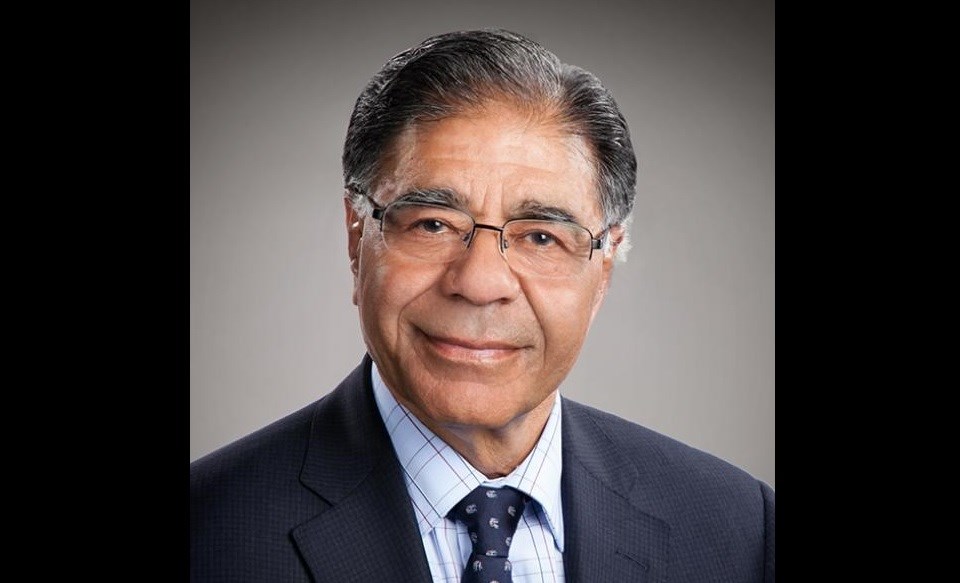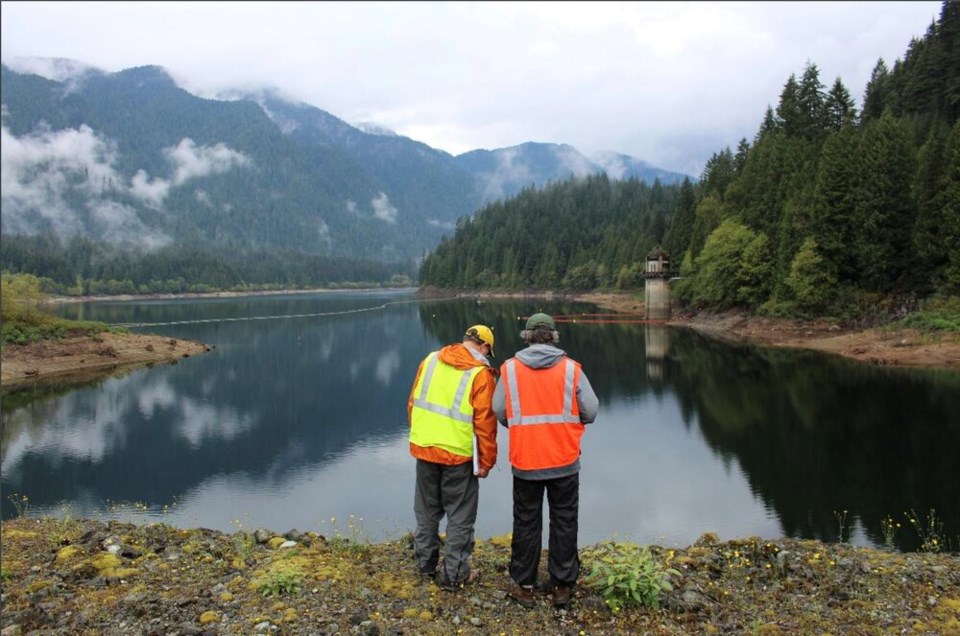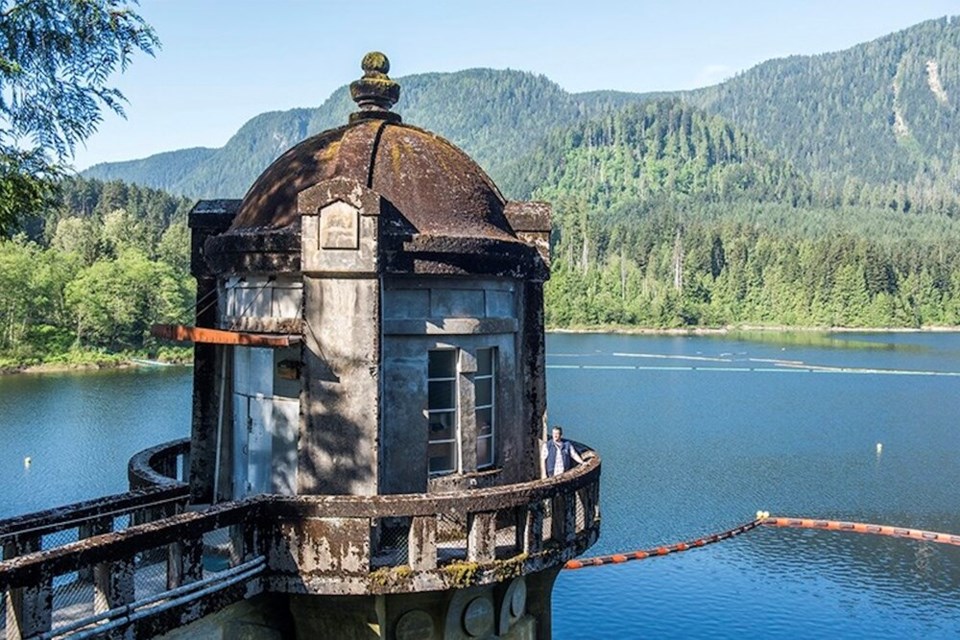Politicians in Metro Vancouver have, for decades, failed to collect enough money from land developers to pay for billions of dollars worth of new sewer and water infrastructure.
This has left existing homeowners to foot an extraordinary bill with skyrocketing taxes and fees in the coming years.
Over the next five years, households could be expected to pay 65 per cent more in utility taxes — from $574 in 2021 to $947 in 2026.
Now, some reprieve is on the way as the Metro Vancouver regional government has proposed a new development cost charge (DCC) for water projects.
Sav Dhaliwal, the chairman of the Metro Vancouver board, says it has been “regrettable” that the region hasn’t been collecting fees for new regional pipes to service all the new density added over the past two decades.
“Water infrastructure should have been part of it,” said Dhaliwal. “We are trying to correct that, and I believe it will be corrected.”
Dhaliwal said Metro has had discussions around implementing the new fees with the Ministry of Municipal Affairs and Housing, the ministry in charge of setting legislation for the regional government.
Still, the existing and proposed DCC rates only address a fraction of the costs. The new water DCC rate will provide for less than 10 per cent of what is needed; anything more is considered by Metro to be too onerous for developers, who generally oppose the new fees, citing costs being passed down to new homeowners.
For example, between 2022 and 2026, $2.48 billion will be spent on water projects, of which $1.32 billion is said to be related to growth. The proposed water DCC begins in 2024, collecting an estimated $56.5 million from builders by 2026. Metro intends to borrow another $1.6 billion to pay for most of the infrastructure.
How will the new water development cost charge affect me?
A new detached home will, as proposed, be charged a one-time fee of $1,338, whereas a new apartment will have an $852 fee assessed for it. Non-residential sites will be charged 68 cents per square foot.
“The big challenge for us is the capital investment that's required to renew our infrastructure,” said Dhaliwal.

Metro’s board sets DCC rates and, according to a report in July, takes into account factors such as the desire for “growth to pay for the costs associated with growth,” but also the impacts of increasing DCCs on housing affordability in the region.
The board recognizes that any funds not recovered through DCCs must instead be recovered through user rates, such as water fees, paid by all system residents. However, as the report states, this represents an “unfair burden” on existing homeowners. This is because they subsidize the new projects after already paying to build and maintain the old ones.
“Metro Vancouver’s current DCC rates do not recover the full cost of growth-related infrastructure,” the report acknowledges.
For example, Metro is building the new $488-million Annacis water supply tunnel to get more water from the region's three reservoirs to Surrey, which, in 2019, added 6,625 housing units — all of which have not paid for this new infrastructure. The water flowing through the tunnel will come in part from an estimated $2.3-billion project to take more water from the Coquitlam Lake reservoir by around 2035.
Metro already collects money from developers for its sewer systems, although those fees — launched in 1997 and renewed in 2017 — have also not kept pace for growth-related needs.
The five-year capital plan to 2026 shows $3.2 billion spent on growth-related sewer systems, with $1.18 billion funded by DCC revenue. The biggest growth projects are a $1.19-billion expansion to the Annacis Island wastewater treatment plant and the $1.63-billion Langley wastewater treatment plant — both servicing the housing boom south of the Fraser.
Newly built units in the “Fraser” area will be charged about twice as much as in Vancouver to reflect such growth.
What are some solutions to close the funding gap?
So, if Metro isn’t collecting enough money for growth-related projects from newly built homes, how will it close the gap to not disadvantage existing residents?
Dhaliwal first says moving debt over longer terms — from 15 years to up to 25 years — and managing resources better, such as with water conservation programs, can help, as can scaling back projects to let the new fees bolster reserves. However, the biggest factor will be money from the provincial and federal governments.
According to Dhaliwal, it stands to reason that new residents will drive economic growth, and some of the taxes new residents and businesses pay to Victoria and Ottawa should be diverted to regional infrastructure.
“These are the projects that create hundreds of thousands of jobs over 20 years,” Dhaliwal claimed. “I think, I know, it will cost a fair amount of money, but also create jobs. And a lot of those jobs have direct benefits for the province and the federal government: more taxes and other consumable goods people buy. So I think there's some good reason for [senior governments] to share,” added Dhaliwal.
“You have to take a look at the economy, the total economy that has grown. And that's the growth that we're talking about should be paying for it,” said Dhaliwal.
Glacier Media pointed out that calling on senior governments still results in significant subsidies for developers and new residents. It also places a more substantial burden on income taxes.

“I agree with you. I believe, ultimately, it's what the taxpayers fund. But I believe that it's much more easier for the other two orders of government to have different sources of income, and they can prioritize how they want to spend than the local governments can. We have really nothing other than just property taxes.”
Also, Dhaliwal states new infrastructure requires federal regulations. He points to the new North Shore tertiary wastewater treatment plant, which was 50 per cent federally funded, as a blueprint. (However, this project is designated by Metro as an “upgrade,” not growth-related.)
Metro hasn’t produced any estimate for what senior levels of government would need to pitch in to help with the infrastructure shortfall. And as the region’s economy continues to grow, Metro reports on DCCs fail to determine what’s fair.
“There are two schools of thought,” notes Metro: “(1) that developers will directly pass along the DCCs and this will be reflected in the price of future residences, or (2) that the housing market dictates the price of new housing and the DCC does not directly impact house prices but will affect the return on investment in the residential development industry.”
The Urban Development Institute, representing many developers in the province, wrote to Metro in September, spelling out its concerns.
“Projects can become unviable. This can result in them being deferred — or prices/rents having to be increased — both of which will make new homes and job spaces more expensive,” the group said.
The institute was particularly concerned about the new water DCC and recent proposed increases to sewer fees rising simultaneously and causing harm to in-stream developments — although it states it supports annual DCC increases if they were consistent.
When asked if local politicians had bent to the will of builders, Dhaliwal bristled.
“Politicians are not overly, overly sympathetic to developers, I can tell you that much. It’s just an impression out there,” he said. “We do our best to make sure that we can get what they are using city services for and what we need. But we can only charge so much.”
Who should be paying for growth and development?
Richmond Mayor Malcolm Brodie is among the longest-standing Metro board members. He said the lack of DCCs for new infrastructure wasn’t for lack of political will; instead, “it’s just one of those things.”
“Every time we bring it in, there’s controversy and push back. But at the local and regional level, I’ve seen politicians bite the bullet,” said Brodie in 2019 when the proposal was being introduced at the committee level.
Port Coquitlam Mayor Brad West joined Metro in 2018 and said this oversight had dug a hole.
”My concern is not enough of the growth and development in the region is paying for itself. Too much of the costs of growth and development are being borne by today’s taxpayers.
“The facts suggest to me that an opportunity was missed when this region was experiencing explosive growth, to ensure more of that growth and development was paying for itself and there was less of a burden on taxpayers. That’s my opinion. I’m sure someone around that time would have reasons. And I guess hindsight is 20/20,” West told Glacier Media in 2019.
Urban planner Andy Yan, director of Simon Fraser University City Program, said the question boils down to, “How do we keep our growth sustainable?” Furthermore, “Who should pay, because it also goes into who's going to profit?” asked Yan. “Who’s going to have direct monetary benefit in this type of growth?”
DCCs, he said, are supposed to deal with the direct costs of servicing and attaching that building to the pre-existing system.
“So one of the interesting things that you're having here is, should these new developments be responsible for paying for the additional load demand that they have into the system?”
Yan said, yes, “you ought to pay.”
And, for Yan, not knowing profit margins for private developers again raises those questions left unanswered by Metro.
“If I was to save that $1,000 to that developer” by not applying a DCC, “is he going to pass on those savings?”
“It just comes down to the need for transparency and accountability,” said Yan, who believes the roughly $1,000 per new unit is a relatively low cost to obtain water services.
“These types of basic charges are not what's making Vancouver unaffordable. These are just the basics of keeping our region going,” said Yan.
Metro was unable to provide a figure for how much growth-related water infrastructure has been built without DCCs since 1997.
“It says that for the last 24 years, we haven't really properly maintained our system,” said Yan.
“Civilization isn’t cheap,” he concluded.



